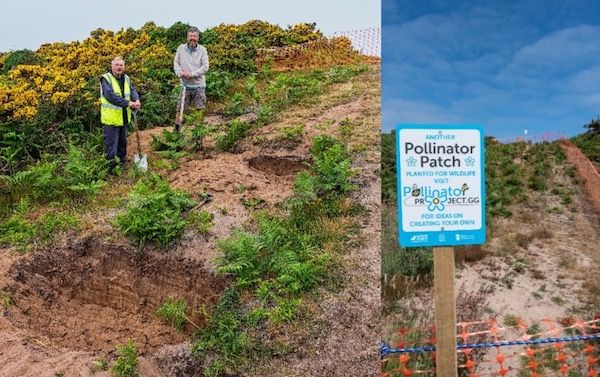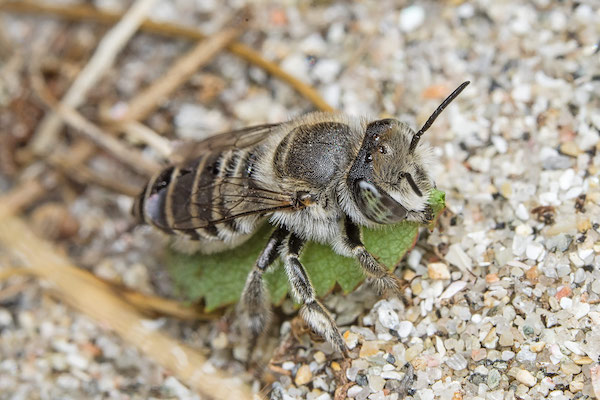

A new initiative from the Pollinator Project and the Vale Commons Council aimed at creating nesting habitats for solitary bees and wasps has been hailed a success in its first season.
An area of badly eroded hillside at Fort Le Marchant was chosen for the pilot scheme, and, earlier in the spring, Pollinator Project members Barry Wells and Vic Froome created small “bee cliffs” in the sandy earth banks. The area was then cordoned off to protect the fragile habitat.
Coastal soft rock cliffs are some of the most suitable but neglected wildlife habitats and home to bees, butterflies and other invertebrates.
Soft cliffs provide these small animals with food, shelter, and places to nest - solitary bees and wasps burrow into the bare soft cliff faces to make their nests in great numbers, a spokesperson for the project said.
"We are all becoming aware how valuable pollinating insects are, but also how they are threatened globally," Pollinator Project co-founder, Barry Wells, said.
"We are really grateful to the Vale Commons Council to allow us to create new habitats for these vitally important creatures, and look forward to continuing this partnership in the years to come.”

Pictured: A Silvery Leafcutter Bees, Megachile leachella.
Within a few weeks of its completion, the area was already being used by Silvery Leafcutter Bees as well as other types of mining bee.
The sandy spoil from the diggings was spread out to create nesting habitat for those bees and wasps that prefer a horizontal surface in which to dig tunnels. This has attracted species such as the impressive European Beewolf – a type of solitary wasp that digs a tunnel as deep as a metre in length in which to lay its eggs.
As well as improving the area for nesting, wildflowers will colonise the bare ground providing nectar sources for the bees and wasps.
With the project already proving successful, the scheme will extended this autumn to add more habitat on south facing slopes at Fort Le Marchant, ready for next year's insects.
Peter Blake, Chairman of the Vale Commons Council, said: "The Council is keen to improve the biodiversity of the Commons, and partnering environmental charities, such as The Pollinator Project in such a practical fashion, is a great way of achieving our goal.”
Comments
Comments on this story express the views of the commentator only, not Bailiwick Publishing. We are unable to guarantee the accuracy of any of those comments.